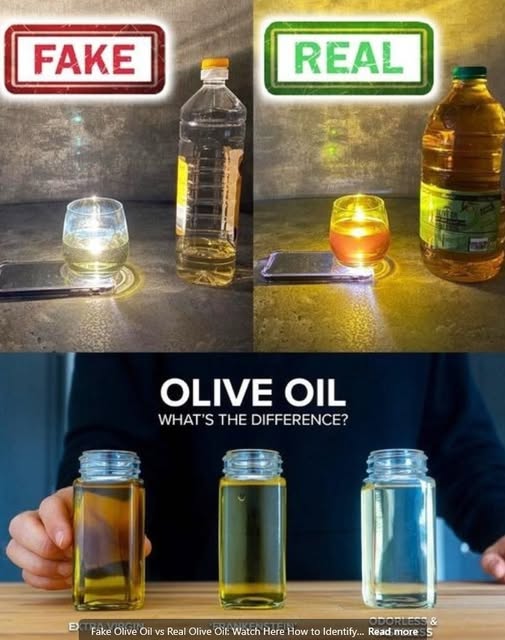Introduction
Not all olive oils are created equal — and unfortunately, the market is flooded with fake or adulterated products claiming to be “extra virgin.” Real olive oil offers powerful health benefits, while fake versions can be diluted with cheaper oils and rob you of flavor and nutrition. Here’s how to spot the difference so you can be sure you’re getting the real deal.
Why It Matters
✅ Health Benefits: Real extra virgin olive oil (EVOO) is rich in antioxidants, healthy fats, and anti-inflammatory properties.
⚠️ Fake Olive Oil Risks: Some contain soybean, sunflower, or other processed oils — often without being labeled — reducing nutritional quality and potentially harming your health.
💸 Cost vs. Quality: Don’t pay top dollar for something that’s not pure!
How to Identify Fake vs Real Olive Oil
1. The Fridge Test (Myth Busted):
You may have heard that real EVOO solidifies in the fridge. While this can happen due to its fat content, it’s not a reliable test because some fake oils can do the same when mixed properly.
2. Smell & Taste Test:
Real Olive Oil: Smells grassy, fruity, or peppery. Taste should be bold, slightly bitter, or have a peppery finish at the back of your throat.
Fake Olive Oil: Often has a flat, greasy, or odorless flavor. No bitterness or “bite” at all.
3. Look for Certification Seals:
Buy brands that carry trustworthy seals, such as:
COOC (California Olive Oil Council)
DOP (Protected Designation of Origin – EU)
PDO/PGI, NAOOA, or Australian EVOO certifications
4. Check the Label:
Please Head On Over To Next Page Or Open button (>) and don’t forget to SHARE with your Facebook friends.



Yo Make również polubił
Crispy Potato Pockets | Cheesy, Savory, and Perfectly Crispy
CHRUPIĄCE ROZGNIECONE MŁODE ZIEMNIAKI.
Pizza z kurczakiem Tikka
Mus Czekoladowy Bez Gotowania – Szybki i Pyszny Przepis na Deser